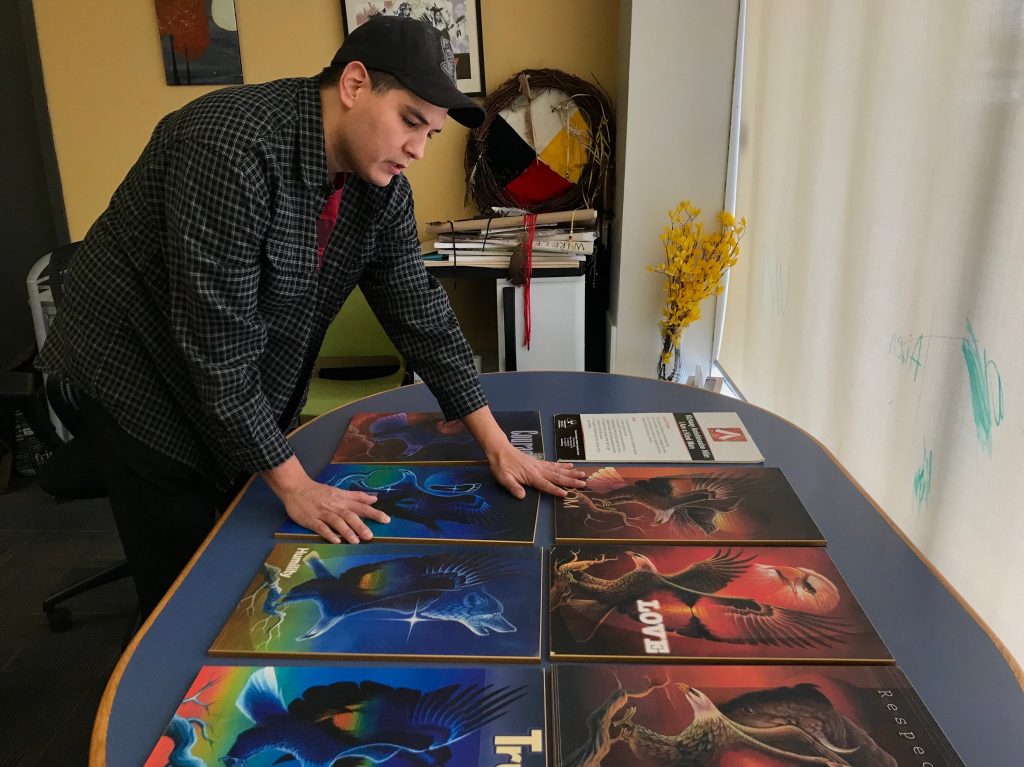Using kindness to fight violence against Indigenous women
By Cora Hansen
It’s been a year since the Odawa Native Friendship Centre implemented its long-term program — Kizhaay Anishinaabe Niin — to reduce violence against women in the Indigenous community.
Jamie Dube, the program’s coordinator and facilitator, said Year 2 will see the adoption of a new, 12-week closed-group session model which is set to begin at the end of this month.
The motivation behind the shift to closed-group sessions is to ensure that men enrolled in the program feel empowered and safe enough with each other to really delve into the emotionally sensitive nature of the program, Dube said.
Kizhaay Anishinaabe Niin, which means “I Am a Kind Man” in Ojibway, is for men ages 13 and up. It seeks to provide a culturally-specific environment where participants are given the tools to prevent violence against women.
The program is rooted in the Seven Grandfather Teachings of wisdom, love, respect, courage, honesty, humility and truth, as well the teachings of the Medicine Wheel – which represents the stages of life through the four directions, the four elements of life, the four medicines, the four seasons, the four states of well-being and the four colours of man.
“With the medicine wheel teachings, and the Seven Grandfather Teachings, there is a lot on respect and acknowledging that you are a part of something bigger. We are all connected,” said Dube.
Kizhaay Anishinaabe Niin is currently delivered in 27 Friendship Centres across Ontario through a $1.8-million expansion in funding provided by the provincial Ministry of the Status of Women in 2016.
The program was introduced to Odawa as a result of the 2016 expansion. Dube has held one-on-one meetings with men since late 2016 as part of the introduction to the program. The program was officially launched last January.
“I was using the open groups as an introductory course for the closed groups so they will have some background and will be comfortable so we can hit the ground running,” Dube said.
According to Dube, participants in the open-group sessions and those who have met with him personally can comfortably share their personal experiences and goals with one another in a constructive, shame-free space. In order to foster an emotionally secure environment, a counsellor will be present in each of the closed sessions.
“The goal is to strengthen the person to not fall into destructive patterns,” Dube said. “The stronger the identity of the person, the harder it is to veer off from that identity and do something that may be harmful to others.”
Self-betterment is what inspired one of Odawa’s first participants, Randy Kakegamick, to participate in the program, and it’s what continues to motivate him.
Kakegamick’s participation was court-mandated because he has a history of abuse against women. “Now I’m moving on from it to try and heal myself and to get a better understanding of why these things took place,” Kakegamick said. “I wanted to get to the root of it and I think I have.”
Many of Dube’s clients are referred to the program through the criminal court system.
Dube’s focus is not only to assist men coming through the justice system, but also to enlighten them on the importance of prevention. He said that bringing in younger men and educating them before abuse occurs will help end the cycle of abuse that has tarnished many Indigenous families.
Kakegamick is now 40, but he hopes his son will learn from his mistakes.
“I just want to put an end to it in my own family…I want to try to raise my son and, you know, show him that daddy’s a good person,” Kakegamick said. “He can be loving and caring and I have demonstrated that with him…I want him to get the things out of me.”

